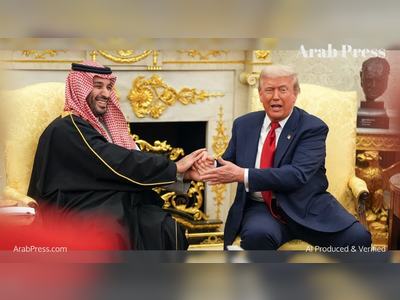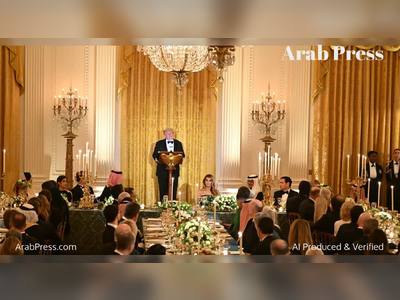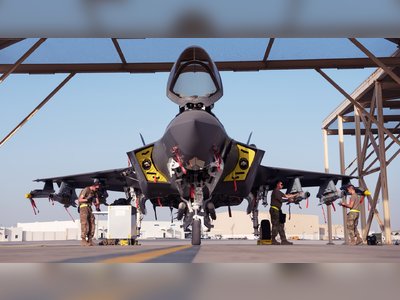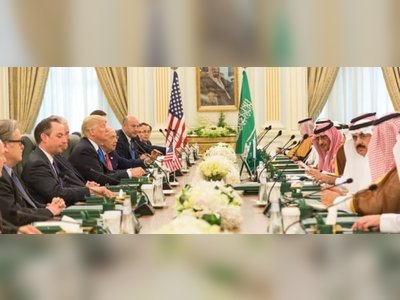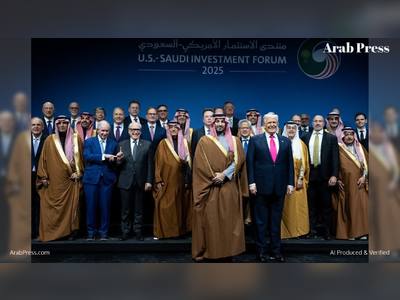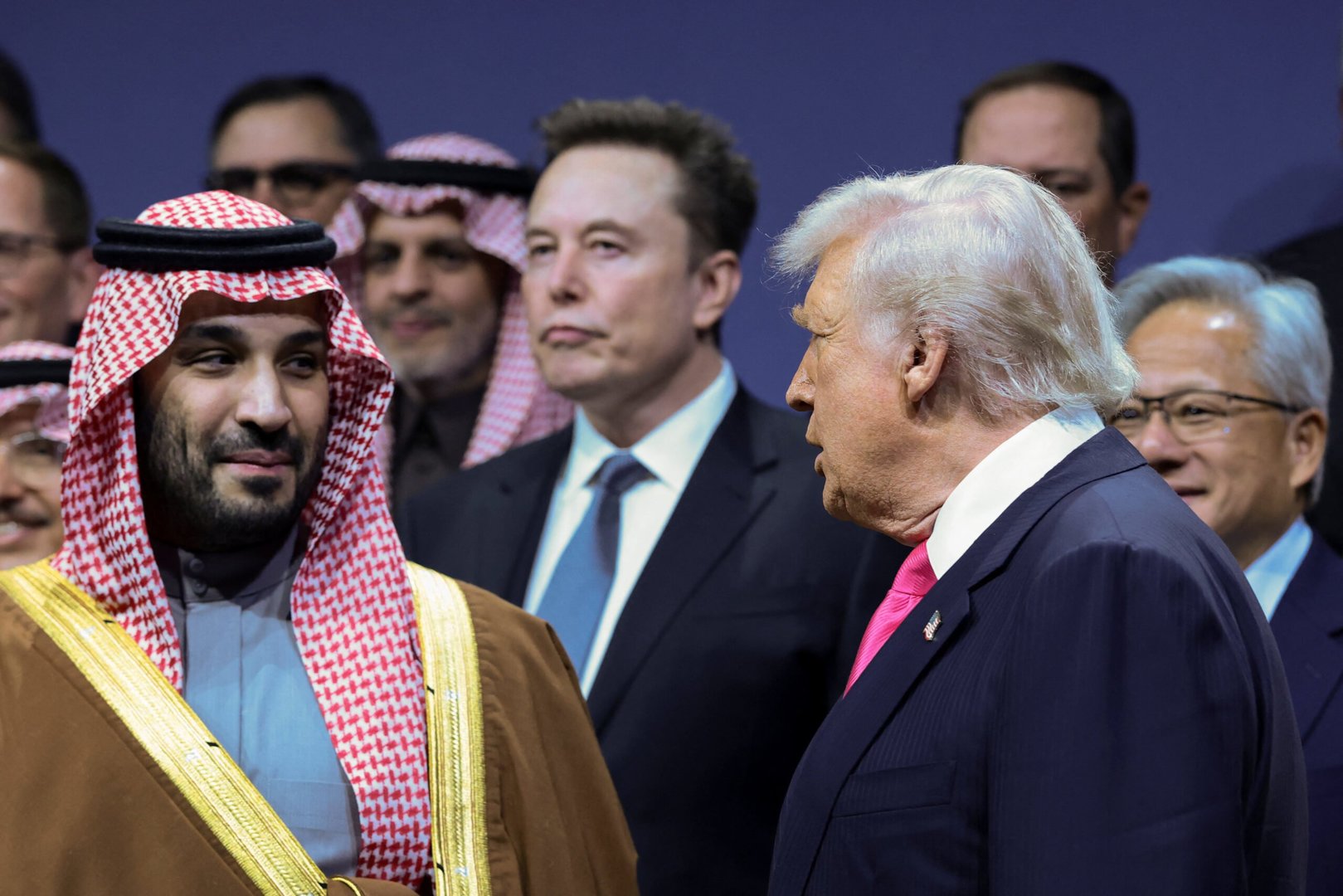
Saudi Arabia Accelerates Human-Capital Transformation as Vision 2030 Nears Decade Milestone
Massive U.S. investment commitments and new technology partnerships sharpen Riyadh’s focus on talent, innovation and long-term economic resilience.
Saudi Arabia’s leadership entered a pivotal new phase this week as President Donald Trump and Crown Prince Mohammed bin Salman advanced a sweeping set of investment and technology agreements, signalling a rapid evolution in the kingdom’s economic trajectory.
With Riyadh committing up to one trillion dollars in U.S. investments and securing access to next-generation American technologies, the kingdom is preparing for a future in which human capital becomes the decisive driver of national strength.
The scale of engagement underscores how far the kingdom has travelled since the launch of Vision 2030, the transformative national strategy aimed at shifting the Saudi economy beyond its historic reliance on hydrocarbons.
Nearly ten years after its inception, non-oil activity now forms the majority of national output, supported by rising participation in retail, tourism, construction and digital services.
Landmark social reforms—most notably the surge in women’s labour participation—have expanded the workforce and accelerated diversification.
Momentum is strongest in knowledge-intensive sectors.
Major announcements at the U.S.–Saudi Investment Forum included plans by xAI to build a large-scale data centre in the kingdom and new data-infrastructure investments backed by Blackstone.
These projects complement growing Saudi ambitions in artificial intelligence, advanced computing, biotechnology and renewable-energy innovation, enabled by abundant capital reserves and an increasingly competitive regulatory environment.
Yet significant challenges remain.
Fiscal pressures, including a widened projected deficit for 2025 and the revenue sensitivity of megaprojects such as NEOM, have sharpened the need for more efficient capital deployment.
International ratings remain strong, but sovereign debt trades at a discount relative to comparable issuers, reflecting execution risks and the scale of long-term commitments.
Expanding domestic capital markets and improving regulatory transparency remain essential to sustaining investor confidence.
Above all, the kingdom’s long-term success depends on cultivating talent.
With roughly seventy percent of citizens under thirty-five, human capability is emerging as the central pillar of Saudi competitiveness.
Continued gains in female participation, targeted skilling programs in high-tech fields and large-scale reforms to primary and secondary education will determine how effectively the kingdom can meet the demands of a rapidly evolving global economy.
Officials are advancing national programs to support this shift, including expanded vocational training, stronger incentives for private-sector apprenticeships and new curriculum initiatives aligned with future-focused industries.
Policymakers are also considering data-driven national performance indicators to track progress in employment outcomes, innovation rates and the growth of small and medium-sized enterprises.
As global competition for talent accelerates, Riyadh is positioning itself as a regional magnet for skilled professionals through lifestyle improvements, competitive incentives and an expanding technology ecosystem.
With decisive implementation, the kingdom aims to turn its demographic strength into a strategic advantage—ensuring that its economic diversification is matched by a generation equipped to lead it.
With Riyadh committing up to one trillion dollars in U.S. investments and securing access to next-generation American technologies, the kingdom is preparing for a future in which human capital becomes the decisive driver of national strength.
The scale of engagement underscores how far the kingdom has travelled since the launch of Vision 2030, the transformative national strategy aimed at shifting the Saudi economy beyond its historic reliance on hydrocarbons.
Nearly ten years after its inception, non-oil activity now forms the majority of national output, supported by rising participation in retail, tourism, construction and digital services.
Landmark social reforms—most notably the surge in women’s labour participation—have expanded the workforce and accelerated diversification.
Momentum is strongest in knowledge-intensive sectors.
Major announcements at the U.S.–Saudi Investment Forum included plans by xAI to build a large-scale data centre in the kingdom and new data-infrastructure investments backed by Blackstone.
These projects complement growing Saudi ambitions in artificial intelligence, advanced computing, biotechnology and renewable-energy innovation, enabled by abundant capital reserves and an increasingly competitive regulatory environment.
Yet significant challenges remain.
Fiscal pressures, including a widened projected deficit for 2025 and the revenue sensitivity of megaprojects such as NEOM, have sharpened the need for more efficient capital deployment.
International ratings remain strong, but sovereign debt trades at a discount relative to comparable issuers, reflecting execution risks and the scale of long-term commitments.
Expanding domestic capital markets and improving regulatory transparency remain essential to sustaining investor confidence.
Above all, the kingdom’s long-term success depends on cultivating talent.
With roughly seventy percent of citizens under thirty-five, human capability is emerging as the central pillar of Saudi competitiveness.
Continued gains in female participation, targeted skilling programs in high-tech fields and large-scale reforms to primary and secondary education will determine how effectively the kingdom can meet the demands of a rapidly evolving global economy.
Officials are advancing national programs to support this shift, including expanded vocational training, stronger incentives for private-sector apprenticeships and new curriculum initiatives aligned with future-focused industries.
Policymakers are also considering data-driven national performance indicators to track progress in employment outcomes, innovation rates and the growth of small and medium-sized enterprises.
As global competition for talent accelerates, Riyadh is positioning itself as a regional magnet for skilled professionals through lifestyle improvements, competitive incentives and an expanding technology ecosystem.
With decisive implementation, the kingdom aims to turn its demographic strength into a strategic advantage—ensuring that its economic diversification is matched by a generation equipped to lead it.
